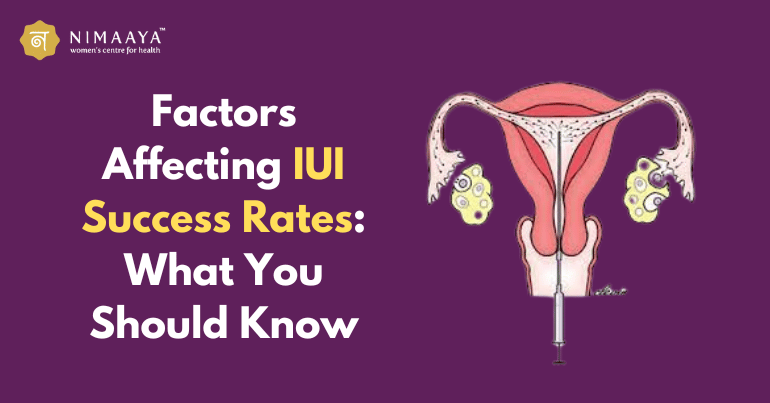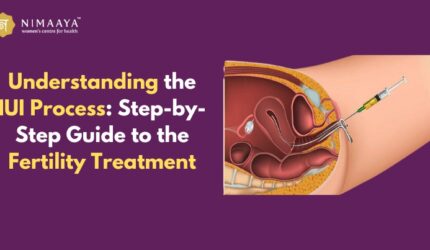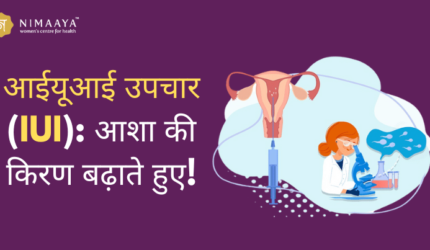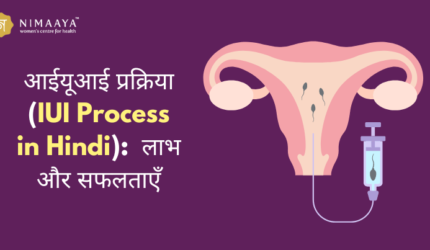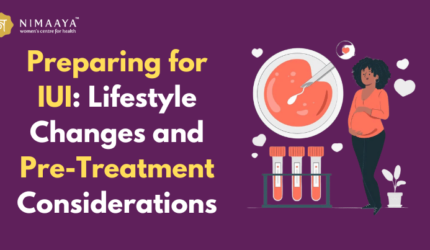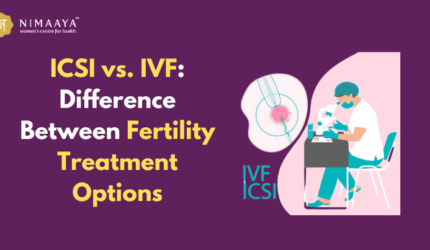Introduction:
Embarking on the journey of assisted reproduction can be both exciting and challenging. For couples exploring Intrauterine Insemination (IUI), the dream of conceiving hinges on various factors that influence success rates. In this guide, we will delve into the intricacies of IUI success rates, shedding light on crucial aspects like history of fertility, quality of sperm, and issues of underlying fertility. Whether you’re considering your first IUI or contemplating a second attempt, understanding these factors is paramount for informed decision-making.
What is IUI and Its Success?
Intrauterine Insemination (IUI) is a fertility treatment that involves the introduction of carefully prepared sperm directly into the uterus during the woman’s fertile window. The goal of IUI is to facilitate the meeting of sperm and egg, increasing the chances of fertilization. The success of IUI is measured by the achievement of a viable pregnancy. Several factors contribute to IUI treatment success, including the individual’s history of fertility, the presence of the issue with underlying fertility, and the quality of the sperm used.
Successful IUI requires a harmonious blend of medical expertise, precise timing, and a conducive reproductive environment. While success rates can vary, advancements in reproductive technologies, such as those offered by leading centers, have improved the overall efficacy of IUI. Understanding the intricacies of IUI and its success is vital for individuals navigating the path of assisted reproduction.
Also Read: IUI Explained: Process, Success Rates & Considerations
Factors Affecting IUI Success Rates:
Fertility History:
Your fertility history plays a pivotal role in determining the success of an IUI procedure. Couples with a history of unexplained infertility may find IUI to be a viable option. However, if there are issues of underlying fertility, a detailed analysis becomes imperative. Prior unsuccessful attempts and the duration of infertility contribute to the overall picture. Seeking guidance from a qualified specialist, who can provide personalized insights into your unique fertility journey.
Understanding your reproductive history is akin to decoding the unique puzzle of fertility. Previous unsuccessful attempts and the duration of infertility contribute valuable information to the overall assessment. Qualified specialists can offer not only detailed analysis but also personalized guidance, unraveling the complexities of your fertility journey and paving the way for a tailored approach to enhance the success of your IUI procedure.
Underlying Fertility Issues:
Identifying and addressing issues of underlying fertility is crucial for a successful IUI. Conditions such as polycystic ovary syndrome (PCOS), endometriosis, or ovulatory disorders can impact the chances of conception. Thorough diagnostic evaluations, conducted by experienced IUI Specialists, can pinpoint these issues, guiding the formulation of an effective treatment plan tailored to your specific needs.
These comprehensive evaluations not only aim to uncover potential obstacles but also play a pivotal role in determining the most suitable course of action for addressing these challenges. The expertise of IUI specialists ensures that tailored treatment plans account for individual nuances, maximizing the potential for a successful outcome in the face of underlying fertility issues.
Sperm Quality:
The quality of sperm used in IUI is a decisive factor in its success. An analysis of the sperm’s motility, morphology, and concentration is essential. The quality of the sperm can be influenced by lifestyle factors, environmental exposures, and overall health. To enhance sperm quality, maintaining a healthy lifestyle, regular exercise, and a balanced diet are recommended. Additionally, certain medications and supplements may be prescribed by specialists to optimize sperm parameters.
Moreover, addressing any underlying medical conditions that may impact quality is crucial for a successful IUI. Specialized diagnostic tests, conducted by experienced fertility specialists, can identify and treat issues such as hormonal imbalances or infections that may affect sperm health. By combining lifestyle adjustments with targeted medical interventions, couples can significantly improve the overall quality of sperm, increasing the likelihood of successful Intrauterine Insemination.
Also Read: Low Sperm Count: Causes, Symptoms, and Treatments
Ovulation Timing:
Ovulation timing stands as a crucial determinant in the success of Intrauterine Insemination (IUI). The precise moment of ovulation is paramount, as it aligns with the optimal window for introducing prepared sperm into the uterus. Timing IUI with precision ensures that sperm is present and ready to fertilize the released egg, enhancing the chances of a successful pregnancy.
Ovulation can be influenced by various factors, and monitoring techniques such as ultrasound scans and hormonal assessments are employed to pinpoint this critical timeframe. A well-coordinated approach to ovulation timing, guided by experienced specialists, significantly contributes to the overall effectiveness of IUI, making it a key factor to consider for couples embarking on the journey of assisted reproduction.
How to Improve IUI Success Rates:
How to improve IUI success rates? This is the most common question couples have in their minds when trying to conceive their baby through IUI. Boosting IUI success rates involves a holistic approach. Couples can adopt lifestyle changes such as a nutritious diet, regular exercise, and stress management to enhance overall reproductive health. Timely medical interventions, including fertility medications, can regulate ovulation and improve the chances of successful fertilization during IUI cycles. Open communication with your healthcare team is vital to ensuring a customized plan aligned with your specific needs.
Keys to a Successful IUI:
Achieving success with IUI requires a combination of factors. Timed and monitored cycles, precise sperm preparation, and a conducive uterine environment are essential. Maintaining a positive mindset, reducing stress, and following medical advice diligently contribute to a successful IUI journey. Collaborating closely with a dedicated IUI specialist ensures that all aspects of the procedure are optimized for the best possible outcome. Furthermore, meticulous attention to the following key factors enhances the chances of a successful IUI:
Consistent Timed and Monitored Cycles:
A well-regulated menstrual cycle is essential for successful IUI. Close monitoring of the menstrual cycle through ultrasounds and hormonal assessments helps determine the optimal time for the procedure, ensuring that sperm and egg are poised for the most opportune union.
Precise Sperm Preparation:
The preparation of sperm before insemination is a critical step in IUI. Specialist techniques are employed to isolate high-quality, motile sperm from the semen sample. This meticulous preparation maximizes the chances of fertilization when introduced into the uterus, increasing the overall effectiveness of the procedure.
Creating a Conducive Uterine Environment:
A receptive uterine environment is paramount for successful IUI. Ensuring that the uterus is in optimal condition involves addressing any underlying issues, such as uterine abnormalities or inflammation. This creates a favorable atmosphere for embryo implantation and early development.
Maintaining a Positive Mindset:
The emotional aspect of fertility treatment is often underestimated. Cultivating a positive mindset and managing stress contribute significantly to a successful IUI journey. Stress reduction techniques, counselling, and support groups can be valuable resources in maintaining emotional well-being throughout the process.
Diligent Adherence to Medical Advice:
Following the advice and instructions of the healthcare team diligently is crucial. This includes adhering to medication schedules, attending regular check-ups, and promptly reporting any concerns or changes in symptoms. Open communication with the medical team fosters a collaborative approach, ensuring that any necessary adjustments can be made promptly.
By integrating these keys to a successful iui, couples can actively participate in optimizing their chances of success. The synergy of medical expertise, precise timing, and a positive mindset creates a holistic approach that maximizes the potential for a successful Intrauterine Insemination.
IUI Success Rate in India:
The landscape of assisted reproductive technologies in India has witnessed remarkable advancements. Nimaaya IVF Center, among others, stands at the forefront, offering state-of-the-art facilities and experienced IUI specialists in Surat. The IUI success rate in India is influenced by factors such as clinic reputation, the expertise of the medical team, and the technology employed. Prospective parents are encouraged to research and choose a reputable center for their IUI journey.
IUI Success Rates by Age in India can also be checked with IUI success rate calculators for couples to get a realistic expectations of success. These calculators take into account factors such as age, history of fertility, and previous treatment outcomes. Age is a critical determinant of IUI success rates. Younger individuals generally experience higher success rates due to better ovarian reserve and reproductive health. As age advances, the quality and quantity of eggs decline, impacting the overall success of IUI. Understanding these age-related dynamics is essential for couples making informed decisions about the timing and approach to IUI.
2nd IUI Success Rates:
For couples considering a second IUI attempt, understanding the success rates is crucial. Factors like the cause of infertility, response to previous treatments, and any adjustments made to the treatment plan impact the likelihood of success. While second IUI success rates may vary, they can be significantly influenced by learnings from the initial attempts, leading to a more refined and targeted approach.
Conclusion:-
Embarking on the path of IUI is a significant decision, and success rates are influenced by a myriad of factors. By comprehensively exploring these factors and taking the right steps, couples can enhance their chances of a successful IUI journey. From first-time attempts to contemplating a second IUI, understanding the keys to success, considering age-related dynamics, and seeking reputable centers like Nimaaya IVF Center in India are pivotal steps.
As you navigate the complexities of IUI, remember that each journey is unique. By staying informed, maintaining open communication with healthcare providers, and drawing inspiration from success stories, you can approach your IUI experience with confidence and hope.

